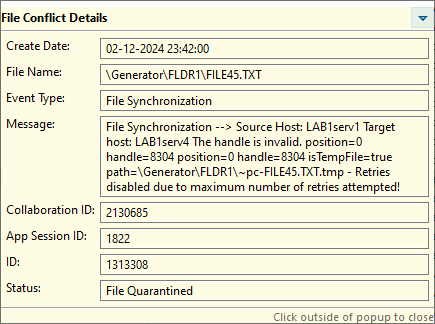What are the different types of quarantines in PeerGFS?
This article explains the various types of quarantines users may encounter in PeerGFS.
Possible Reasons for Quarantines
Insufficient Disk Space: Not enough disk space for the operation.
Permissions Issues: The PeerGFS service account lacks write permissions for the target location.
File Not Found: The source file is missing.
Target File Not Found: The target file is missing.
Path Resolution Issues: The system cannot resolve the file path.
Host-Reply Timeout: A participant did not respond to a file operation request.
Anti-Virus/Anti-Malware Interference: Security software is blockinng necessary actions.
Read-Only Attributes: Older PeerGFS versions may have issues with read-only attributes.
Invalid Dates: The file's creation or modification date is either before January 1, 1970, or set in the future.
Different Mod Date: The file was modified on multiple Agents.
Types of Quarantines
Quarantine messages may include Windows error codes, which be be searched for additional details.
File Add Quarantine
Description: Occurs when a new file is created.
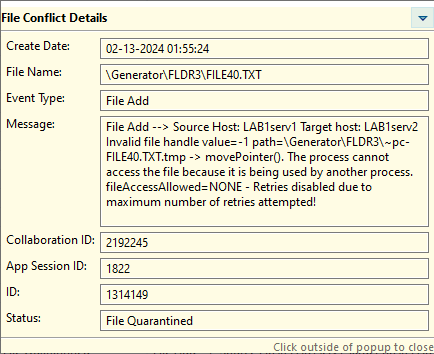
File Close Quarantine
Description: Occurs when a file is closed.
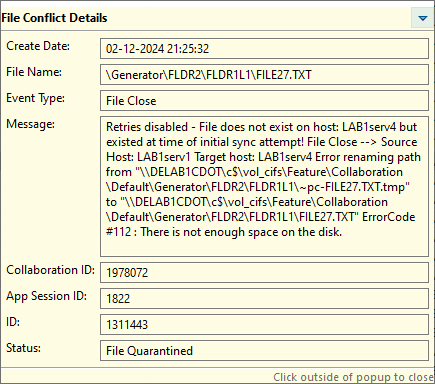
By default, PeerGFS renames temporary files during transfers to and renames them to replace the original files once the transfer is complete. Quarantines may also occur if PeerGFS writes directly to target files instead of using temporary files.
File Delete Quarantine
Description: Occurs when a file is deleted.
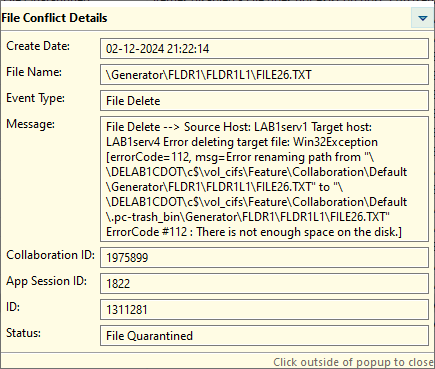
If Target Protection is enabled, deleted files are moved from the source to .pc-trash_bin on participating servers.
File Lock Quarantine
Description: Occurs when a file lock is acquired.
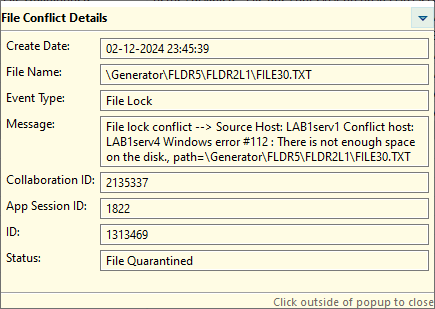
File Modify Quarantine
Description: Occurs when a modified file is synchronized.
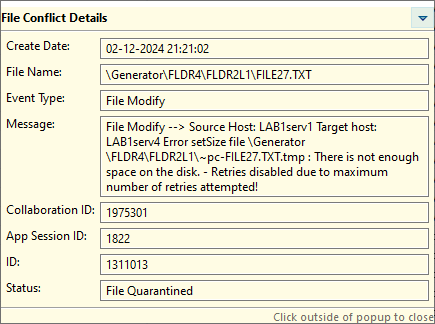
File Synchronization Quarantine
Description: Occurs during file synchronization.
